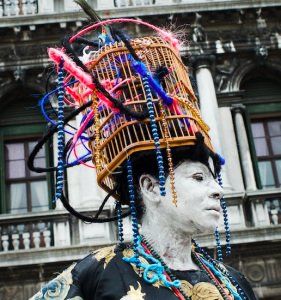There aren’t too many people who get a standing ovation before they even speak.
John Lewis, former chairman of the Student Nonviolent Coordinating Committee (SNCC) and the last living member of the “Big Six” civil rights leaders, is one of them.
From the movement he walked on stage, I could feel the energy in the room: the overwhelming love and appreciation for this man who endured so many brutal beatings as he strove for justice; the rising hope that tenaciously carries on from the victories of the civil rights movement; and the growing despair that we are sliding backwards in time, regressing towards our darker days of hatred and oppression.
And then he spoke. A deep, melodic voice that rolled across the room, reverberating from every corner. The crowd fell silent.
This was actually the second time I had the pleasure of hearing John Lewis speak. The first was in 2009 when he was my commencement speaker as I finished my Masters’ degree at Emerson College. The second time, last night, he delved even deeper into his experience of the civil right movement as he was hosted by my former colleagues at Tisch College at Tufts University.
He’s a politician now – Lewis has served as Congressman for Georgia’s 5th congressional district since 1987 – but he doesn’t speak with the same canned cadence which is so widespread amongst elected officials.
You get the distinct impression he genuinely believes what he says; and that his beliefs have been shaped by the difficult crucible of experience.
In 1965 he led nearly 600 protestors in a peaceful march over the Edmund Pettus Bridge in Selma, Alabama.
Prepared for being arrested, the 25-year-old Lewis carried the essentials with him: two books, an apple, a banana, and a toothbrush. All the things he thought he might need in prison.
“I thought I’d be arrested an jailed,” Lewis recalled. “But I didn’t think I’d be beaten – that’d I’d be left bloody there.”
Lewis’ skull was fractured by a police nightstick and he nearly lost his life.
It wasn’t the first time Lewis had been beaten, either. At the age of 21, Lewis was the first of the Freedom Riders to be assaulted while working to desegregate the interstate bus system.
This was life for a young, black man in 1960s America.
And, perhaps, most remarkably, through it all Lewis continues to follow the message of his friend and mentor, Dr. Martin Luther King. In response to such brutal attacks, in the face of the terrible of injustices of today, Lewis turns not to anger, but to love.
“To revolutionize America to be better, we must first revolutionize ourselves. We have to humanize our institutions, humanize ourselves,” he argues.
For Lewis, the choice is quite simple, “You can’t set out to build the beloved community and use tactics which are not loving.”
So he endured the bloody beatings, endured the deepest injustices of our system. And in 2009, when a former Klansman apologized for being one of Lewis’ assailants, the two hugged and cried.
“That’s the power of the way of peace, the way of love, the way of non-violence,” Lewis said.
Of course, not all activist share this view – and in remembering the civil rights movement, we too often gloss over or belittle the important contributions of activists like Malcolm X. But that’s a longer debate for another day.
So for now, I will leave you with a final thought from John Lewis, who has endured so much in his continuing fight for the equality of all people. Quoting Dr. King, Lewis just smiles and explains his philosophy simply:
“Just love the hell out of everybody.”



